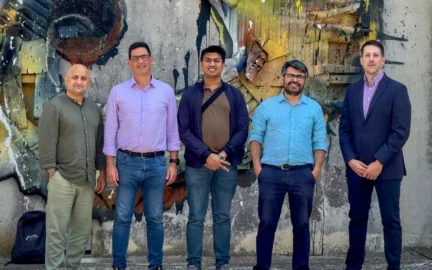Empowered Engages Audience at Talent Show
For talent immigration to work effectively for a nation and its citizens, it must provide immediate, tangible benefits…

For talent immigration to work effectively for a nation and its citizens, it must provide immediate, tangible benefits not just the promise of future rewards. That was one of the key messages delivered by Chris Lennon, President of Empowered Startups, during a public session organized by Associação para o Desenvolvimento Económico e Social (SEDES) in Faro, Portugal, where numerous stakeholders gathered to discuss best practices and relevant case studies that could positively shape policy in the region and, perhaps, the country itself.
Lennon was part of a four-person panel who were each invited to share their experiences and ideas with parties interested in both attracting and retaining more talented people to the Algarve region. Lennon explained how a strong talent immigration policy can both properly support a country’s broader innovation policy and enhance regions outside of major urban centres to create more prosperous communities. He emphasized that using the HQA Visa Program to inject accomplished entrepreneurs into regional universities and polytechnics like the University of Algarve would not only deliver investment and expertise, but would also serve to retain domestic talent who might otherwise leave for outside opportunities.
Lennon’s commentary was supported by that of Professor Carlos Lobo, who served as Portugal’s Secretary of State of Tax Affairs from 2008-2009 and was instrumental in establishing the Non-Habitual Resident (NHR) program to attract investment to the country. Lobo opined that favourable tax policy is necessary to entice accomplished businesspeople to Portugal, which he said must also establish stronger housing policies to support current and future residents. Those points were echoed by Portugal’s Member of European Parliament, Carlos Zorrinho, who stated migration is fundamental in modern society and that policy reform is constantly being examined by all of his colleagues across Europe. Further discussion on the subject led to a suggestion from the audience that the success of the HQA Visa Program could serve as an example to other European nations, an opinion Zorrinho thoughtfully contemplated.
Multiple examples of case studies provided context for the conversation. Professor João Rodrigues, Vice-Rector of University of Algarve, detailed several of the projects being collaborated on at his university as a result of the HQA Visa Program. He revealed the wide scope of the various endeavors currently underway, the substantial number of projects that will soon be undertaken, and the significance of the resulting economic investment these collaborations have created. Startup Leader, Paulo Martins of Empowered Startups, expanded the analysis of the program’s impact by showing the vast array of innovative start-ups it has brought to universities and polytechnics throughout Portugal. Lucy Musk, COO of The Portugal News, described her own journey of immigration from South Africa as a backdrop for advocating for policy change as a means for attracting more transnational businesspeople.
The informative session was closed by SEDES Regional Coordinator, Paulo Neves, and Rector of the University of Algarve, Paulo Águas, each of whom offered impassioned speeches about the region’s potential for growth. With the momentum established by this collection of motivated, influential individuals and the effective mechanism of the HQA Visa Program in place, the prospect of stimulating further investment and innovation throughout Portugal appears very likely in the months and years to come.







